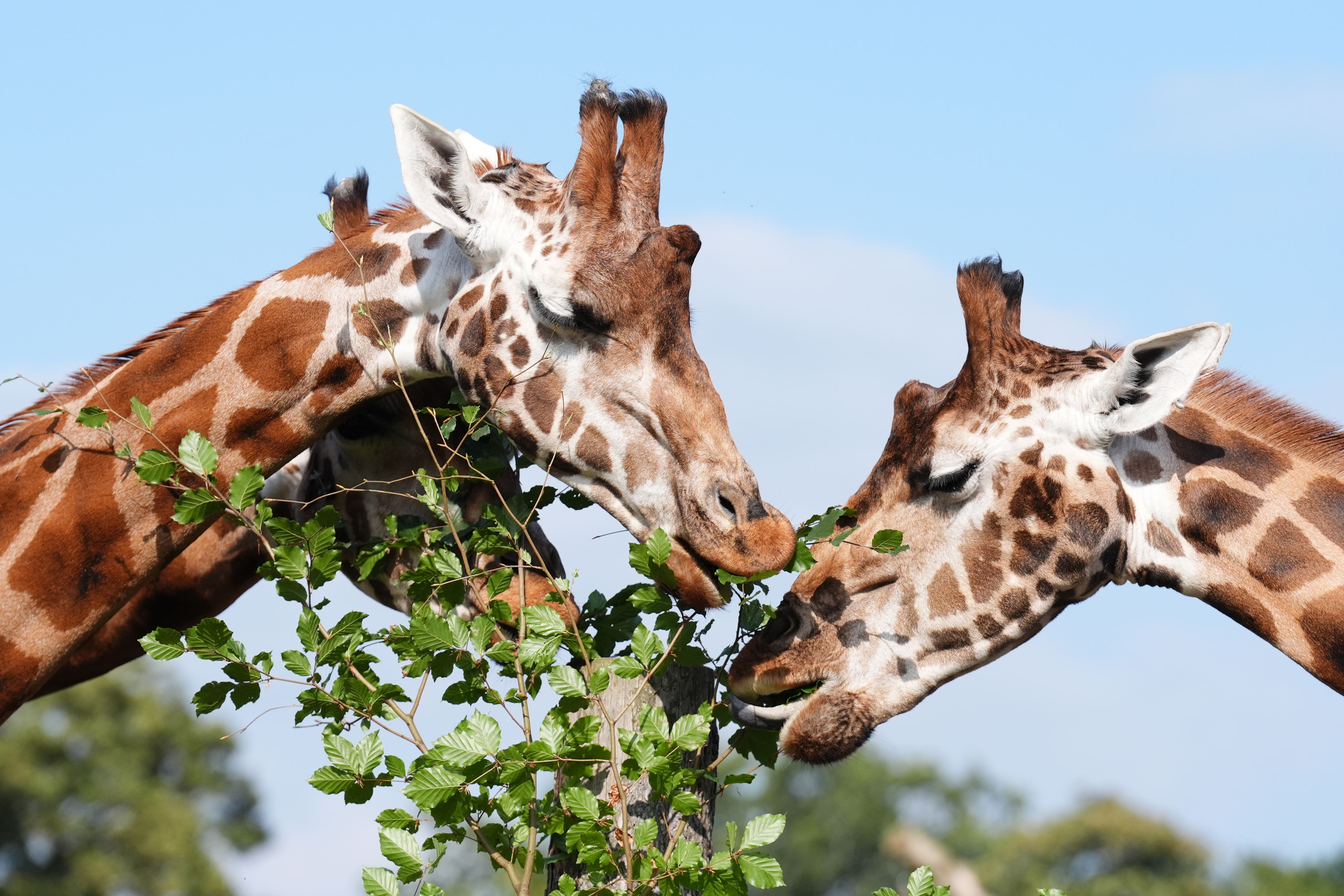Safari park staff ‘delighted’ with progress of giraffes on training programme
Blair Drummond Safari Park staff say making healthcare procedures less stressful for giraffes reduces the need for sedation and restraint.

Your support helps us to tell the story
From reproductive rights to climate change to Big Tech, The Independent is on the ground when the story is developing. Whether it's investigating the financials of Elon Musk's pro-Trump PAC or producing our latest documentary, 'The A Word', which shines a light on the American women fighting for reproductive rights, we know how important it is to parse out the facts from the messaging.
At such a critical moment in US history, we need reporters on the ground. Your donation allows us to keep sending journalists to speak to both sides of the story.
The Independent is trusted by Americans across the entire political spectrum. And unlike many other quality news outlets, we choose not to lock Americans out of our reporting and analysis with paywalls. We believe quality journalism should be available to everyone, paid for by those who can afford it.
Your support makes all the difference.Safari park staff have said they are “absolutely delighted” with the progress made by giraffes taking part in training intended to boost their confidence around healthcare procedures.
The giraffe training programme, at Blair Drummond Safari Park near Stirling, uses positive reinforcement techniques to make procedures like hoof care, blood tests and X-rays less stressful for the long-necked mammals.
During training sessions staff use a “target stick” to show the animals what to do, and then reward them with treats and vocal cues when they show the behaviour required in healthcare procedures.
Staff say this helps the animals associate those procedures with positive experiences, in turn building their confidence and reducing the need for sedation or restraint.
Deputy team leader Shonagh Bell, who has spearheaded the programme, said: “During each training session, a target stick is used to communicate what we want the giraffes to do, while a clicker and vocal cues serve as signals that the behaviour has been achieved.
“The giraffes are rewarded with delicious treats like vegetables and willow leaves when they exhibit the targeted behaviour.
“This positive reinforcement strengthens the desired behaviour and encourages voluntary cooperation.”
Staff said that after one year’s training the park’s four giraffes – male Sifa and females Bella, Ruby and Harriet – are showing increased “confidence and skills” around a range of healthcare procedures.
They said Harriet, who is known as the park’s shyest giraffe, has made the most impressive progress.
She now co-operates willingly when having blood samples taken from her neck, allowing keepers to draw blood without stress.
She has also voluntarily undergone jaw x-rays for assessing her dental health, which staff say demonstrates the programme’s potential for non-invasive healthcare.
She and Sifa are also making progress with hoof care training, with staff explaining that both are now comfortable with placing their feet on a foot block, and that they are beginning to accept touch from keepers.
I'm absolutely delighted with how quickly our training has progressed in just one year.
Team Leader Suzi Marshall said: ‘I’m absolutely delighted with how quickly our training has progressed in just one year.
“Shonagh (Bell), with the help of keeper Erica Haworth, has done an incredible job building up the giraffes’ confidence and skills.
“I’m so proud of everything they’ve achieved.
“I want to thank them for their impressive efforts and dedication to developing this training initiative.”
The park remains committed to the ongoing progress of the training programme, with the aim of further developing the confidence of all the giraffes.